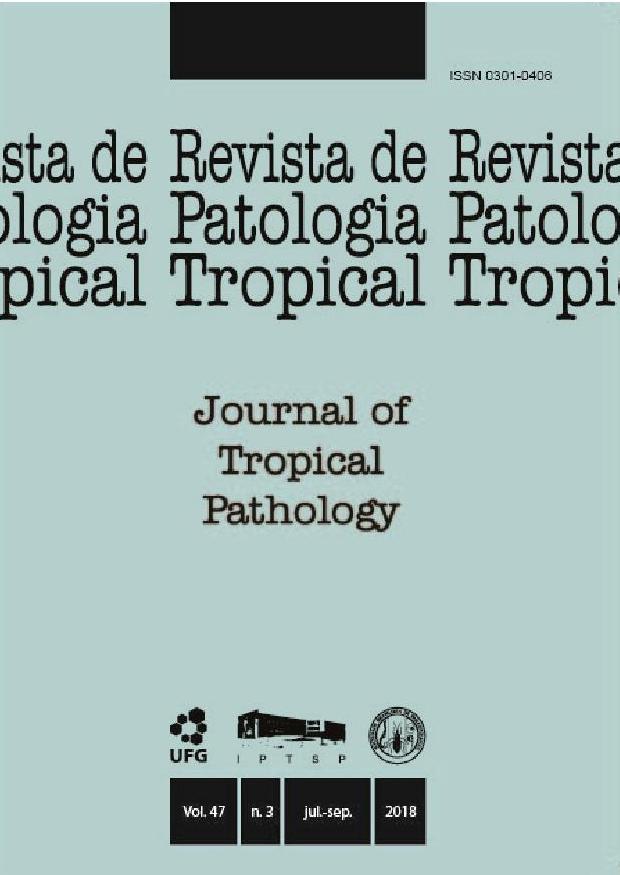INSECTICIDAL ACTIVITY OF ANACARDIUM HUMILE (ANACARDIACEAE) NUT SHELL LIQUID AGAINST AEDES AEGYPTI (DIPTERA: CULICIDAE)
DOI:
https://doi.org/10.5216/rpt.v47i3.55118Palavras-chave:
Vector control, botanical insecticide, CerradoResumo
This work investigated the insecticidal activity of Cashew Nut Shell Liquid (CNSL) extracted from the species Anacardium humile, a native plant in the Cerrado biome, against Aedes aegypti. A. humile fruits were collected and kept in a forced ventilation kiln at 40ºC for seven days for CNSL extraction. Mortality tests were performed on third stage larvae, pupae and adults. In addition, female oviposition behavior, egg viability, and the residual effect of the solution on 3rd stage larvae were observed. The CNSL was diluted in decreasing gradient concentrations to obtain the Lethal Concentration (LC). In oviposition LC99 was used for larvae. Residual effect and oviposition tests were performed with LC99, LC 50 and LC90 were respectively obtained, 6.63 and 11.23 ppm for larvae. No mortality was observed in adults. The residual effect of the CNSL was five days in LC99. A repellent effect of CNSL on the females was noted, with a significant reduction of egg numbers and a change in egg stratification patterns in the oviposition substrate. The larval hatching rate of the eggs exposed to the substrate moistened with CNSL was significantly lower when compared to the control. The results evidenced the insecticidal activity of A. humile CNSL, suggesting it as a promising product in the quest for new botanical insecticides.Downloads
Downloads
Publicado
Como Citar
Edição
Seção
Licença
The manuscript submission must be accompanied by a letter signed by all authors stating their full name and email address, confirming that the manuscript or part of it has not been published or is under consideration for publication elsewhere, and agreeing to transfer copyright in all media and formats for Journal of Tropical Pathology.

